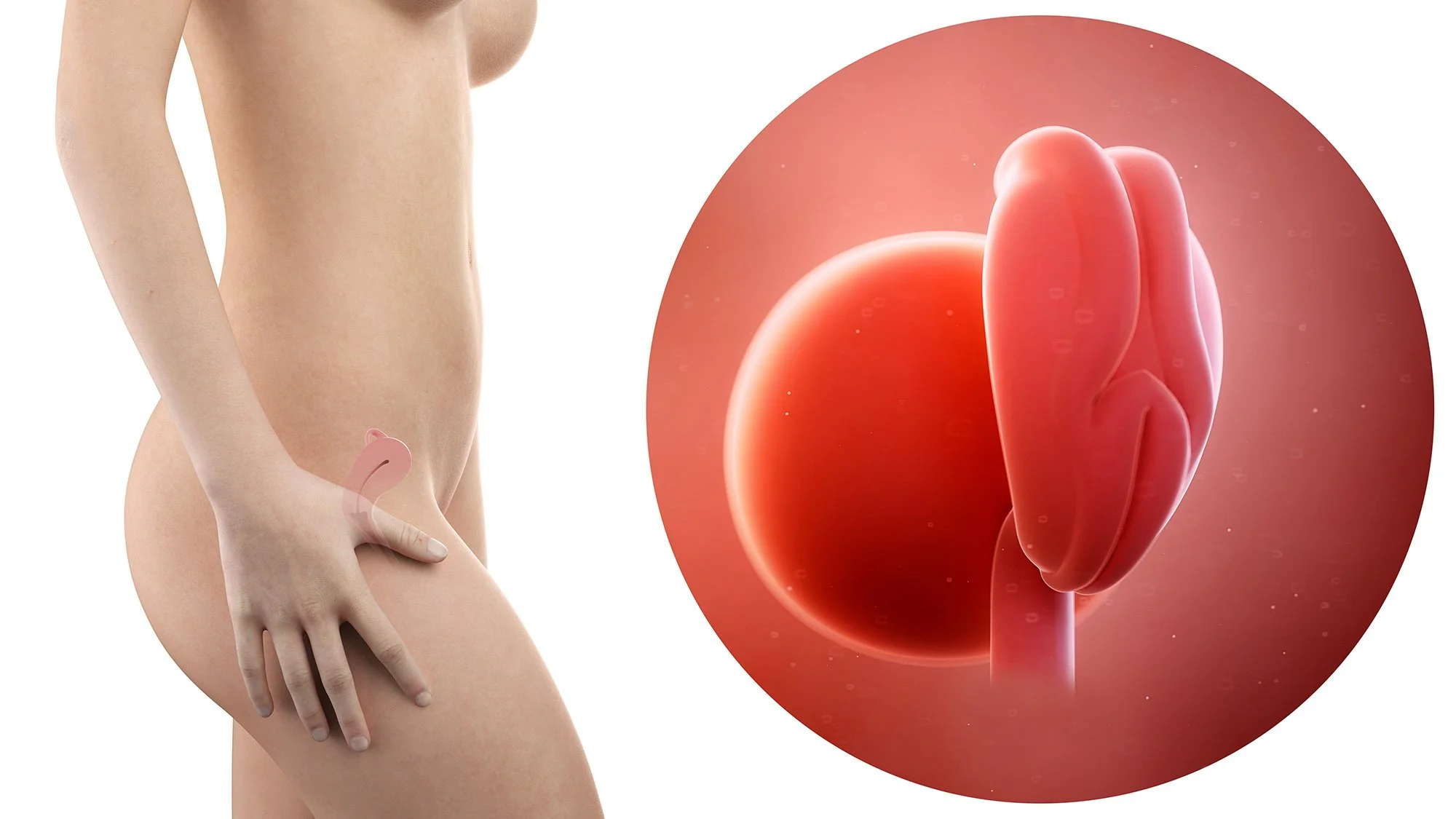
PREGNANCY
Month One (1 to 4 weeks)
Congratulations on the remarkable journey of pregnancy, where the first trimester, spanning from week 1 to week 12, lays the foundation for your baby's development. This period is marked by the formation of your baby's body structure and vital organ systems, setting the stage for growth and vitality. However, it's also a time of vulnerability, with the highest risk of miscarriages and birth defects. As your body undergoes profound transformations, the first trimester may present unique challenges, yet it's a testament to the awe-inspiring process of bringing new life into the world.
How is your baby developing?
Congratulations! From the moment of fertilization, a miraculous journey begins. Your egg, now fertilized by the father's sperm, has securely nestled into the lining of your uterus. The formation of the placenta and umbilical cord has commenced, laying the groundwork for a lifeline of nutrients, oxygen, and essential hormones to nourish your growing baby. During these early weeks, your little one is known as an embryo, poised to transform into a fetus by the end of the second month.
Within this tiny marvel, three distinct groups of cells are rapidly multiplying and specializing:
- Cells dedicated to shaping the nervous system, delicate hair, and soft skin.
- Cells crafting the intricate pathways of the digestive system and the expanding lungs.
- Cells molding the foundation of the cardiovascular system, robust kidneys, developing muscles, and tiny bones.
Though currently no larger than a grain of rice, your baby is a hub of activity, generating millions of new cells each day, heralding the remarkable journey of growth and development ahead.


What are the changes happening to you?
Emotional
During the first month of pregnancy, it's normal to experience a whirlwind of emotions. While excitement may dominate, feelings of anxiety, confusion, moodiness, and fatigue can also make their presence known. These emotions are all part of the journey and are entirely normal. However, if you find yourself struggling or feeling overwhelmed, don't hesitate to reach out to your healthcare provider for support and guidance. Your emotional well-being is just as important as your physical health during this transformative time.
Physical
Here are some common physical symptoms you may experience during this time:
Breast tenderness and changes
Nausea, often referred to as morning sickness
Food cravings or aversions
Slight blood spotting, especially during implantation
Frequent urination (stay well-hydrated with purified water)
Increased sensitivity to smoke, perfumes, and alcohol as your body's protective mechanisms kick in to safeguard your baby's health.
Hormonal
Following conception, your body undergoes significant hormonal changes to support the growth and development of your baby:
Progesterone levels rise to reduce the risk of miscarriage and initiate essential changes in your body, such as breast development, while also slowing digestion.
Estrogen prepares the uterine lining for implantation and increases blood volume, often resulting in a pregnancy "glow." It also stimulates the production of Human Chorionic Somatomammotropin (HCS), which supports breast changes and facilitates fat utilization for energy and baby growth.
Human Chorionic Gonadotropin (HCG) plays a crucial role in preventing menstruation and may contribute to morning sickness and vomiting, particularly in the first trimester.
Calcitonin helps regulate calcium levels, conserving calcium for your own needs while supplying the necessary calcium for your baby's development.
Thyroxine (T4 and T3) supports the development of your baby's nervous system and regulates their overall growth.
Erythropoietin stimulates the production of red blood cells to meet the increased demand during pregnancy.
Prolactin begins preparing your breasts for lactation and growth, in anticipation of breastfeeding after birth.
What do you need to do?
Taking care of yourself and your baby starts with tuning in to your body's needs:
If you're feeling anxious, take some time to relax. Consider practicing meditation, engaging in prayer, or simply taking slow walks in nature. Gentle exercise can also help soothe your mind.
When you're tired, give yourself permission to rest. Take a nap if possible and establish healthy sleep habits to ensure you get quality rest at night.
If hunger strikes, opt for organic, nutrient-dense foods from our recommended list, including wholesome snacks. Eating well is essential for both you and your baby's health.
Stay hydrated by drinking at least half of your body weight in fluid ounces of high-quality water every day.
Combat nausea with soothing foods like bananas, fresh ginger, and peppermint tea. Supplementing with Vitamin B6 and magnesium can also be beneficial for easing nausea.
Start looking for a midwife or OBGYN to support you throughout your pregnancy. It's essential to find a provider you trust and feel comfortable with, so don't hesitate to ask questions and establish a good rapport before making your decision. Your provider will be a crucial source of support and guidance throughout your pregnancy journey.

Questions to consider asking include:
What prenatal screening is necessary?
Do you provide advice on diet and nutritional supplementation?
Where am I to have my baby?
Can the provider deliver the birth experience you want?
What are the provider’s C-section and hospital transfer rates (if necessary)?
Do you allow informed consent and parental choice regarding vaccinations, procedures, and testing during pregnancy and birth?
What does your medical insurance cover? What costs to expect?
When will I start feeling nauseous?
When should I start taking prenatals and supplements?
Is it normal to feel no symptoms at this stage?

Mothers2B Nutritional and Supplement Support
For a comprehensive list of supplements we recommend during this time and to order, see our Mothers2B Pregnancy protocol in our shop.
PREGNANCY
Your highlight nutrients for this month are:
Vitamin B6
Folate
Inositol
Vitamin C
Calcium
Magnesium
To download Understanding Nutrients, purchase our ebook by clicking here.

PREGNANCY
Mothers2B FREE recipe of the month
Skip the take-out and make your own stir-fry dinner in minutes! This recipe is higher in protein and lower in carbohydrates and fats, making it a perfect meal for you and your growing babe. It focuses on some of our highlight nutrients for the month making it perfect for those first few weeks of pregnancy.
Garlic Chicken Skillet with Mediterranean Cauliflower Rice








